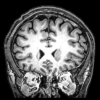Here I am going to discuss the issue of anhedonia, or more specifically emotional numbness. This post will be relevant to individuals who got blunted either from chronic stress, the negative symptoms of schizophrenia, SSRIs or toxic drugs like accutane. If you have regular depression, coming with a reduced ability to feel pleasure, you do not have anhedonia. If you are numb simply due to a hormone or vitamin problem, fix it. For people that abused stimulants like amphetamines and meth, BPC-157 should restore you.
Now... I will mention some different approaches to relying on anti-depressants that are not a long term solution, although still better than having to stay numb for years and years with only short periods of relief from dopamine boosting stimulants that ultimately lead to further desensitization if taken regularly. If after reading all this you still wish to put your hope on anti-depressants, I highly suggest you read Jahio's posts or contact him. He is the guru of anti-anhedonia meds.
I haven't found much information on how to cure emotional numbness, although I know from a fact it's possible. No there isn't any magic potion for that, but I believe I found some good answers recently which I'm going to put in use.
I do not think there is much importance to what triggered the emotional bluntness, in the end we seem to benefit from similar substances, whether it's stimulants or anti depressants. There is this person who got anhedonic from accutane and is getting great improvement from NAC + Sarcosine, a few other non schizophrenics have as well. My theory is that our reward center is affected the same way in all of us.
From this link below, we learn the core of what's happening in our brains that prevents us anhedonics from feeling pleasure or emotions: (anhedonia isn't a disorder in itself anymore and is included in the criterion of MDD which I personally think is stupid considering relentless depressed mood and apathy are different in many major ways...)
https://www.ncbi.nlm...es/PMC5070048/
Consistent with the goals of the research domain criteria initiative, our study provides new insights into the neurobiological basis of anhedonia and highlights its unique relationship with emotion- and reward-processing systems. More specifically, we show that anhedonia in MDD is associated with disrupted communication between the pVMPFC and reward- and emotion-related regions during the processing of positively valenced stimuli. Our results also indicate that in adults with MDD, anhedonia reflects a lack of engagement between the pVMPFC and reward-related functional circuits when contextually appropriate, rather than a constant deficit in connectivity. Thus, probing resting-state connectivity of the pVMPFC may be inadequate for assessing anhedonia-specific effects. Our findings also support the notion that specific psychiatric symptoms in MDD can be linked to distinct neurophysiological pathways. Finally, our results show that connectivity patterns related to anhedonia and general distress vary between VMPFC subregions, demonstrating the importance of anatomical specificity. In summary, the identification of specific anhedonia-related circuits can facilitate a better understanding of psychopathology and heterogeneity in MDD, as well as more effective tracking of one of the core MDD symptoms.
So abnormal connectivity between specific regions of our brain accounts for the emotional numbness, as opposed to inactivity.
Worth noting:
In MDD, pleasant music evoked significantly greater pVMPFC connectivity with left pallidum extending into caudate and thalamus, right frontal pole and supramarginal gyrus (Table 1). In contrast, healthy controls showed significant pVMPFC connectivity with bilateral superior temporal gyrus and right lateral occipital cortex. Comparisons between groups revealed that controls did not show greater connectivity in comparison with MDD patients, but MDD patients showed greater pVMPFC connectivity with right frontal pole in comparison with healthy controls. Thus, MDD patients showed greater pVMPFC connectivity with frontal lobe regions implicated in planning and higher-order cognition
I do recall staying in my head too much before my anhedonia started. I used my emotional self less and less. This combined with chronic stress was what made lose my capacity to feel progressively until I reached the baseline of 95% anhedonia.
So how could we use the information from this study to restore our ability to feel? Well it might be indeed a matter of staying out of our heads the most possible. Living life paying the least attention possible to anhedonia, limiting thoughts like: "oh man life sucks right now, it would be so much better if I could feel". Of course it's true, but it's also counter productive. Yeah... if I'm right, the way of getting out naturally really wouldn't be something intuitive, it would be a plan you need to follow. It's normal to be negative with anhedonia, normal to not care about going out and stay home. Well be positive, go out, stay active and act like anhedonia isn't even there. Live like you're emotional even though you feel close to nothing, you are strengthening the brain connections you need. Stress not even is toxic on a neurochemical level, but it will also make you stay in your mind analyzing everything, often it will induce negativity so it should be avoided. I find socializing to be a great way to stay out of your mind. Really good if you get a girlfriend, if you already have one and is regularly socializing, then other step is to keep active and avoid staying in your thoughts. Well, if you are thinking too much and are feeling numb it's best you find an occupation. If your thoughts are negative, you want to avoid that the best you can, if they are positive (comfortably numb), embrace them. Mood can fluctuate for no reason with anhedonia so it won't always be up to you. If mood is at your lowest, I found cold showers to be a savior. Give yourself a small goal that you can find motivation out of. Too much of big one will most likely not be productive as it would just stress you, doesn't matter if you were a highly ambitious and motivated person before the anhedonia came. Apart from that, you should reduce intake best you can of food high in sugar and stimulants (for coffee I'm still not sure), and cut sex/porn all together. They are not worth the increase in numbness and irritability you'll get after the boost. We get tolerance to substances much faster than the norm, it's not a sustainable option. If you can get yourself to meditate daily and exercice regularly, that's great. So yeah, that would be the natural route to cure anhedonia. It needs to be given time and dedication, but you will find yourself much more patient to recover if you follow the rule of living in the present and acting like anhedonia isn’t there. It's possible to heal naturally, a few have including "Itstrevor". Yes, him who for years was so medically oriented in his search for a way out, but then decided he was going to cut on any kind of medication (which wasn’t working for him anyway, although I wasn’t too keen of his choices, except Parnate, but he had an adverse reaction to it). One of my favorite quote from him: “Instead of thinking of the anhedonia as inherently bad, think of it as the brain resting and like being in a "bubble bath" or "cotton sheet" without any cares. If you have experiences extreme anxiety you will appreciate this. Obviously, it would be difficult to appreciate if it was permanent, but it really is not in all of the reading I've done.” Oh and just going to add…it’s been shown that some anhedonics from the negative symptoms of schizophrenia can hit remission from CBT. Which kind of surprised me at first that this genetic condition could also heal naturally, but actually it confirms my theory.
Right now I’m one week into N-acetylcysteine + Sarcosine with daily dosing of 2g each. These two are synergistic and act on NMDA receptors, most likely the ones responsible for blunting me as they enhance toxic glutamate release with prolonged stress… but just saying. My stress is relatively low right now, and does it mean I’m not anhedonic anymore? Nope. Still, low stress is one ingredient to the cake. But the reason I’m on these two amino acids is that they may aid in neuroplasticity (making easier to remodel brain networks—> more facility to correct our disrupted brain circuits communication), supports NMDA receptor function and… well random reports that it helped some with anhedonia.
Here I need some help. So I just yesterday started supplementing on Ubiquinol CoQ10:
https://www.ncbi.nlm...pubmed/23928691
Several recent studies suggest a close link between mitochondrial dysfunction and depression. Coenzyme Q10 (CoQ10) is a mobile electron carrier in the mitochondrial respiratory chain (MRC) with antioxidant and potential neuroprotective activities. This study investigated the effect of chronic administration of CoQ10 (50, 100, and 200 mg/kg/day, intraperitoneally, for 4 weeks) on anhedonia and on the activities of MRC complexes and creatine kinase in the frontal cortex and hippocampus of Wistar rats subjected to chronic restraint stress (CRS, 6 h × 28 days). Exposure to CRS-induced anhedonic-like behavior (decreased sucrose preference), reduced body weight gain and food intake, increased adrenal gland weight, and altered the activity of the MRC complexes in the brain areas tested. CoQ10 dose-dependently antagonized CRS-induced depressive behavior by increasing sucrose preference (reversal of anhedonia), body weight, and food intake and reducing adrenal gland weight. CoQ10 also enhanced the activities of MRC complexes (I-IV) and creatine kinase in the frontal cortex and hippocampus. Thus, the reversal of CRS-induced anhedonia may be partially mediated by amelioration of brain mitochondrial function. The findings also support the hypothesis that brain energy impairment is involved in the pathophysiology of depression and enhancing mitochondrial function could provide an opportunity for development of a potentially more efficient drug therapy for depression.
https://www.wellness...th-coenzyme-q10
"Anhedonia, or the inability to experience pleasure in life, is a concern seen with mental and physical exhaustion. When this occurs, things look bleak and uninteresting and the zest for life leaves. It may cause a loss of enjoyment with social interaction, hobbies, exercise, music or even eating favorite foods. Anhedonia is often seen with depression, but is actually a symptom of stressed mitochondrial function within the brain. To understand how to resolve anhedonia, researchers gave stressed, depressed rodents four weeks of high dose coenzyme Q10. Symptoms markedly improved. The rodents went back to eating and doing their favorite activities. Due to the study, the authors recommended coenzyme Q10 as a more efficient drug therapy for depression. Consider using 300 – 600 mg per day for a month or two to see if this gets you back into the game."
I believe it should be perfectly safe to supplement CoQ10 with Sarcosine and NAC, but if anyone thinks otherwise, please do not hesitate to notify me about it.
Also CoQ10 is an anti-oxidant... I kind of have been unable to exercise this last year, I have been forced to give up on the gym and stopped completely a couple months ago. I'm watching my diet and still do light cardio here and there, but can barely push myself anymore or I get dizzy and overly short of breath. The EKG didn't show anything... Maybe it's due to biological lack of oxygen? If I have that it might not be so good to supplement on something with anti oxidant properties... I don't know honestly when I type over shortness of breath and dizziness while exercising there's so many stuff that pop up. I got referred to a cardiologist after the EKG and all he did was check my pulse and after I mentioned my symptoms and that the cardiogram results came up normal was tell me that there's the possibility. Then he revealed the price of checking that, 700dollars. Hmmm...I'm still young and live in the US so my insurance is s***, and pretty sure my parents are fed up with all the doctor visits they payed for over the year period since I had lost my emotions. Don't think it's worth annoying them again for more testing that might just come up negative. Well, to be honest in the beginning I did a lot of random testing, along with clueless psychiatrists and neuro psych assessment I wasn't dealing with anhedonia the way it should be dealt with and was kind of hypochondriac. Hmmm I do get strong confusion when I'm drunk, high on weed or psychedelics, I have to avoid those psychoactive substances. Maybe this is related to my shortness of breath or anhedonia somehow? Don't expect an answer for all this, but can't hurt to try... Anyhow, CoQ10 definitely seems promising and I'd recommend people who are also emotionally numb to take a look into it.
Now for my final point. Again, something that seems very promising in restoring emotions: Vagus Nerve Stimulation ---> directly zapping our brain's reward center
Until just yesterday I only knew about the invasive neurosurgery of VNS, the price being in the same range of Deep Brain Stimulation (50k) except your insurance most likely won't cover it, and the results aren't instant. One thing for sure is it's effective.
https://www.quora.co...n-in-depression
"2) If you have 23-70 thousand US$, time (say 6-15 months) to let it work and can endure a surgery, the Vagus Nerve Stimulator, is unquestionably the best available treatment. It is scandalous the treatment is not covered for severe depressives by most insurances, but its data is hard to prove because the effect develops slowly. I personally, testify it has mostly restored me from near-complete anhedonia, a rare and absolutely horrible condition, according to a doctor from Harvard/McKlean who consulted with me on the subject in 2007."
Well, turns out there is some much much cheaper and safer alternatives to this:
https://www.engadget...rvana-hands-on/
https://www.elsevier...reat-depression
-"In this new study, Drs. Peijing Rong and Jiliang Fang at the China Academy of Chinese Medical Sciences, collaborating with Jian Kong’s research team at Harvard Medical School, investigated a new, modified form of VNS called transcutaneous VNS, which instead stimulates the vagus nerve through electrodes clipped onto the ear, similar to how headphones rest inside the ear."
-"Compared to patients who received sham VNS, the patients who received real VNS showed significant improvement of their depressive symptoms. This improvement was associated with increased functional connectivity between the default mode network and precuneus and orbital prefrontal cortex, an important network in the brain known to be altered in depression."
Wow... I just informed myself on the Vagus Nerve and turns out meditation stimulates it, explains why It's been said to help with anhedonia. Well, I guess it's also that it's good for stress and promotes a more positive outlook in life.
http://www.pacificco...ted-vagus-nerve
"Any kind of GI distress can put pressure on the nerve and irritate it, with a hiatal hernia being a frequent culprit. Poor posture along with muscular imbalances canalso cause the vagus nerve to misfire, as can excess alcohol or spicy foods. Stress can inflame the nerve, along with fatigue and anxiety."
(... ) I'm learning everyday. I happen to have a terrible terrible posture when I'm on my bed and use my computer. I stand up straight as soon as I'm out of my it, and especially when with people, but my neck and lower back will still burn or feel uncomfortable for a while. So I'm going to add that on my list on what caused my anhedonia to set in I guess: chronic stress, staying in my head too much and poor posture.
Well, there goes an habit I can easily fix which can potentially benefit my anhedonia ![]()
Feel free to comment. You can also message me here on Longecity or "Hellboy_ez" on reddit.



























































